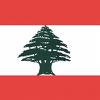Lebanon national dialogue begins work to bridge divide
 Beirut - Lebanese leaders began a national dialogue on Tuesday, hoping to mend the deep divisions that have recently pushed the country to the brink of civil war.
Beirut - Lebanese leaders began a national dialogue on Tuesday, hoping to mend the deep divisions that have recently pushed the country to the brink of civil war.
The conference comes after a 26-month period marred by political turmoil and factional clashes.
Among the participants led by President Michel Suleiman are Prime Minister Fouad Seniora, ruling majority leader Saad Hariri and parliamentary speaker Nabih Berri.
Phalange Party leader Amin Gemayel, Free Patriotic Movement leader Michel Aoun, Progressive Socialist Party leader Walid Jumblatt and the head of Hezbollah's parliamentary bloc Mohammed Raad, as well as Christian Lebanese Forces leader Samir Geagea were also in attendance.
Addressing the gathering, Suleiman said "the small state of Lebanon has no other option but to be united to face challenges targeting the region."
He called "for sacrifices and concessions in favor of Lebanon and its dignity," stressing that the dialogue would open a window to calm dialogue, discussions and respect of opinions.
The president said the latest assassination of pro-Syrian Druze official Saleh al-Aridi last Wednesday was aimed at "blocking the dialogue."
Suleiman said he was confident that all issues on the agenda of the dialogue including the issue of Hezbollah arms, will be tackled and that the leaders "can adopt a strategy to defend Lebanon based on benefiting from the capabilities of the resistance (Hezbollah)," but the process might take some time.
Suleiman thanked Arab efforts which helped in securing the bases to relaunch the dialogue, especially those of Arab League Secretary General Amr Mussa and the state of Qatar.
Qatar gathered Lebanese rivals in Doha on May 16, ending seven days of bloody battles inside the capital between the Hezbollah-led opposition and others loyal to the anti-Syrian ruling majority, that led to the killing of more than 80 people.
The leaders agreed on May 21 to relaunch the national dialgoue after Lebanese army commander General Michel Suleiman was elected as president and after a national unity government was set.
The Doha agreement called for state control over all Lebanese areas, and the agreement of all groups not to use arms to achieve political ends.
Following Suleiman's public address, the leaders entered a closed session.
Press reports said Berri would propose in the closed session an expansion of the list of participants in the dialogue conference, which has already been rejected by leaders of the ruling majority.
Observers believe the conferees would not tackle in the first session any of the topics listed on the dialogue agenda, mainly the Hezbollah arms.
"Mainly this session will be considered a test for the conferees and their ability to ... work towards the stability of the country. The thorny issue of Hezbollah arms will be discussed at a later stage," political analyst George Alam told Deutsche Presse-Agentur dpa.
The Hezbollah-led alliance also wants to add further topics to the agenda, including economic issues.
The Arab League's Mussa told reporters on Monday that the dialogue conference presided over by Suleiman is "important because Lebanon now has a leader on top of the helm. He thinks, acts and tries to unify ranks." (dpa)